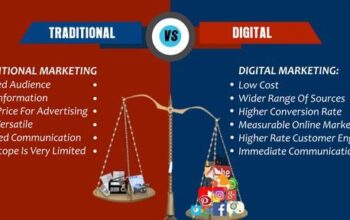The key to helping your teen is communication. Open and honest dialogue will allow you to convey your concerns, establish a plan of action and implement boundaries.
As parents, we need to make sure they know that we care about their social media usage and understand how much it can impact them. We can also set non-negotiable limits like no devices at the dinner table.
Fear of Missing Out (FOMO)
Adolescence is a highly sensitive time when peer acceptance and sense of belonging are paramount. Social media is the perfect platform for teens to seek that sense of acceptance, which may cause them to become addicted. This addiction can have serious consequences, including sleep deprivation and depression. Teens may even take dangerous actions, such as texting while driving, to avoid missing out on what their peers are doing.
A recent study revealed that FOMO, or fear of missing out, is the number one reason why teenagers are addicted to social media. FOMO is defined as the uneasy feeling that others are having fun or enjoying themselves more than you are. Seeing photos and videos of friends’ experiences on social media can trigger this feeling, as can hearing from others about what they are doing.
In addition, impulsivity and sensation-seeking drive teens to do whatever feels good in the moment without regard for consequences. This makes them more susceptible to addictions of all kinds, including social media addiction. Girls, who often post edited, idealized images of themselves online, can especially struggle with body image issues that lead to FOMO and addiction. When a teen receives a like or positive feedback on their posts, it activates the same circuits in the brain as winning money or eating chocolate. This creates a dopamine rush that motivates them to continue posting, checking and watching.
Social Comparison
The desire to create a “likable” virtual self and to attract positive feedback from others can be particularly strong in teenagers addicted to social media. This can result in an unhealthy competition that is often fueled by comparison of the physical appearance, accomplishments, and lifestyle of their peers.
Social media can also be a source of anxiety for teens. Teens can feel anxious about being judged, especially if they have poor body image issues. They can become overwhelmed with feelings of inadequacy, even when they receive many likes and comments.
A teen who is addicted to social media can spend so much time on their phones, they miss out on real life activities, events, and people. They may have a hard time maintaining grades, or they may struggle to connect with friends in the real world.
If a teen is struggling to control their use of social media, it is important for them to seek help. Individual therapy can be a great place for them to work through their addiction, potentially open up about things they don’t feel comfortable talking about at home, address any additional mental health or social conditions that are tied into their addiction, and develop a plan of action.
Parents should talk with their teen about the dangers of social media addiction. It is also important to set boundaries for their teen around social media use, including setting up regular times when they will not be allowed to access it.
Self-Esteem
There’s a growing number of teenagers who are addicted to social media. This can cause them to be depressed and prone to self-harming behaviors like bulimia, anorexia and substance abuse. It can also lead to poor academic performance. Teens who are addicted to social media are less likely to get enough sleep and have lower self-esteem than those who don’t use social media.
Social media can create a false sense of self-worth in teens by encouraging them to post only their best pictures and accomplishments. This can lead to narcissism and depression and can even affect their ability to have real-life friendships. It can also interfere with their ability to fully experience an activity, a condition known as flow state. Teens who are addicted to social media may spend more time taking photos and posting about their experiences on Facebook than they do actually enjoying the beach, concert or whatever else they’re doing.
Social media can also encourage unhealthy body image in teens by promoting unrealistic body expectations and unrealistic standards for beauty. Girls, in particular, tend to be more influenced by social media influencers who post edited, idealized images of themselves. They may feel that their bodies are not good enough and end up feeling anxious and depressed. They also often suffer from emotional eating as a result of these negative feelings.
Addiction
If you think your teen is addicted to social media, it’s important to address the problem as soon as possible. While it may be difficult for them to let go of their screens, they can still take steps to limit and monitor their internet use. Whether it’s through a family discussion or monitoring their phone use with an app like Vault, parents can help nudge teens towards better habits.
Just like other addictive behaviors, social media addiction triggers chemical reactions in the brain. For example, when a teen gets a like or comment on a post, the same circuits in the brain are activated as when they win money or eat chocolate. This response causes a “high” that makes them want to repeat the behavior again and again. In addition, the algorithms on these sites are designed to keep users clicking, posting and watching so that the companies can make a profit.
Social media can also be a source of stress and low self-esteem. This can lead to feelings of anxiety or depression, which often leads to increased use of social media as a way to escape. This is particularly true for girls, who are more likely to have lower self-esteem than boys and find comfort in online relationships. Those with other emotional struggles, such as social anxiety or depression, may be at an even greater risk of using social media to cope with these issues.



